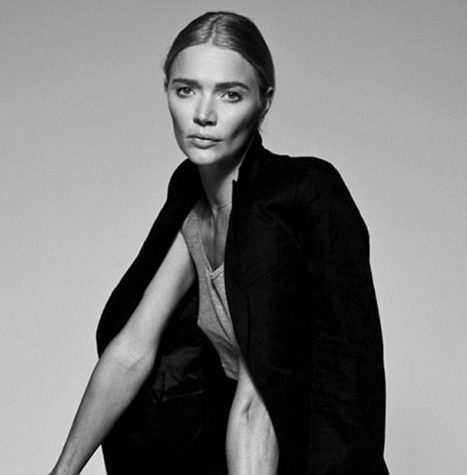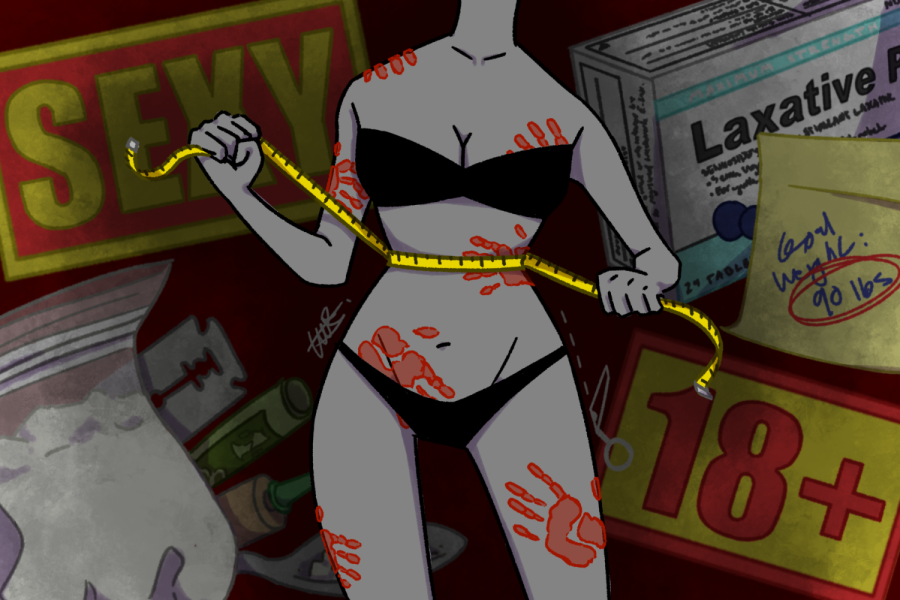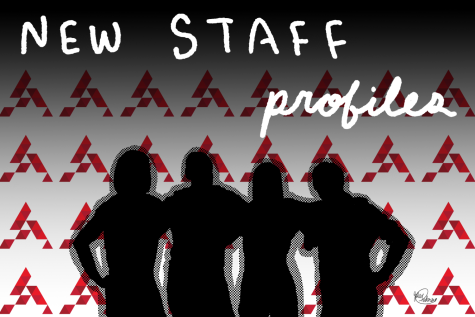Social Media and Body Image
Have you ever been scrolling through your instagram feed when it switches from posts of your friends to posts of instagram models in swimsuits? You’re not alone. Seeing unsolicited pictures of how your body should look has been a problem for years. You will be scrolling through instagram or click on your ‘explore’ page and then there you go: another skinny girl in a bathing suit. No one really wants to see these pictures; you know they are just going to worsen your self image. And yet, you can’t help but click on them and analyze the photo. It’s not just people in their teens or 20’s seeing these pictures, but even young kids with social media are bombarded with these images. Having girls bombarded with images of “what they should look like” in print and TV advertising is old. But, with the new age of social media, the issue has become more prominent and urgent.

Seeing images about how your body should look has been an issue for years. Teen magazines such as Seventeen, which started in 1944 started out as a magazine where young teenage girls could learn about fashion but morphed into a beauty standard magazine by the 80s-90s. Movies such as Never Been Kissed, which was a popular movie in the 90s, promote the idea that you need to be pretty to be noticed. For example, in the popular Friends it was accepted that the character Monica used to be ugly because she was plus sized. In a survey of people who watch FRIENDS, 45% of the watchers are under 18. This is such young audience and is giving the wrong idea to young kids. At the time, the idea of not being pretty because you’re plus sized was all over television and also in popular magazines such as Vogue and People. These magazines only featured the skinniest girls out there, and the models who worked for them would promote being super skinny such as model Kate Moss. Moss was a famous supermodel in the 90’s who was the poster child for “Heroin Chic”, which was the type of body standard where models were so skinny they looked like they were on various drugs. Her message was not good for anyone, especially younger kids. She said “nothing will ever taste as good as skinny feels.” Although she says she regrets saying this now, the message was still out there at the time affecting many young kids. The headlines were like “you should look…” or “how to lose 10 pounds in a week” as seen in figure 1 below. There has been lots of talk about how the modeling industry was really harmful and bad for both the models involved and the people consuming the media. While this may be true, in the age of network TV and print magazines, people have to simply turn off the TV or not buy a magazine. While one could theoretically do the same with social media, our phones are more integrated into our daily lives.

As pernicious and persistent as the problem has been in print, it is magnified in the age of social media. Today, phones are ubiquitous, making such images much harder to avoid. From when you wake up in the morning and open up instagram to just scrolling through tik tok, over and over again people are being fed images of how they should look and ways to try harder to look that way. Many studies nowadays talk about how the impact of seeing influencers on social media is harming adolescents. These studies show that having social media and looking at these images constantly really affect the way you see yourself. Seeing these images can make people who don’t look like that feel “less than” or otherwise worsen their body image. Even models who everyone looks up to have negative images about their bodies. In an interview, Kendall Jenner stated that she needs to remind herself when she looks in the mirror that she isn’t only saying negative things about herself now but she is saying it about her younger self. I think people forget that it’s not only the people who are scrolling on instagram who get insecure, but also the influencers,even though they are people who are supposed to be looked up; they still feel the same as most people do about their own image.

So what do we do about it? The matter of fact is that this is a really hard issue to talk about and do something about. Sometimes you can just put your phone down or swipe out of the app. It is more complicated than that. If people take more time for self care and not let themselves get consumed in the media, things might go a lot smoother. I know it’s hard to not let the posts get to you or to take a break from scrolling, but sometimes, you just need to take a step back and remember, you are only seeing people at their best and how they want you to see them. Everyone has their good and bad days and don’t let someone’s best day make your day worse. Sometimes when you are scrolling through social media you can just stop and try to remind yourself that you are beautiful no matter what you look like. Hopefully over time this can help with the problem that is at hand.

In the past two years Simi has gained an interest in writing that brought her to Journalism. Jane Austen, an English novelist, and one of Simi’s favorite...







